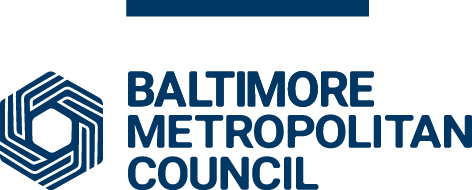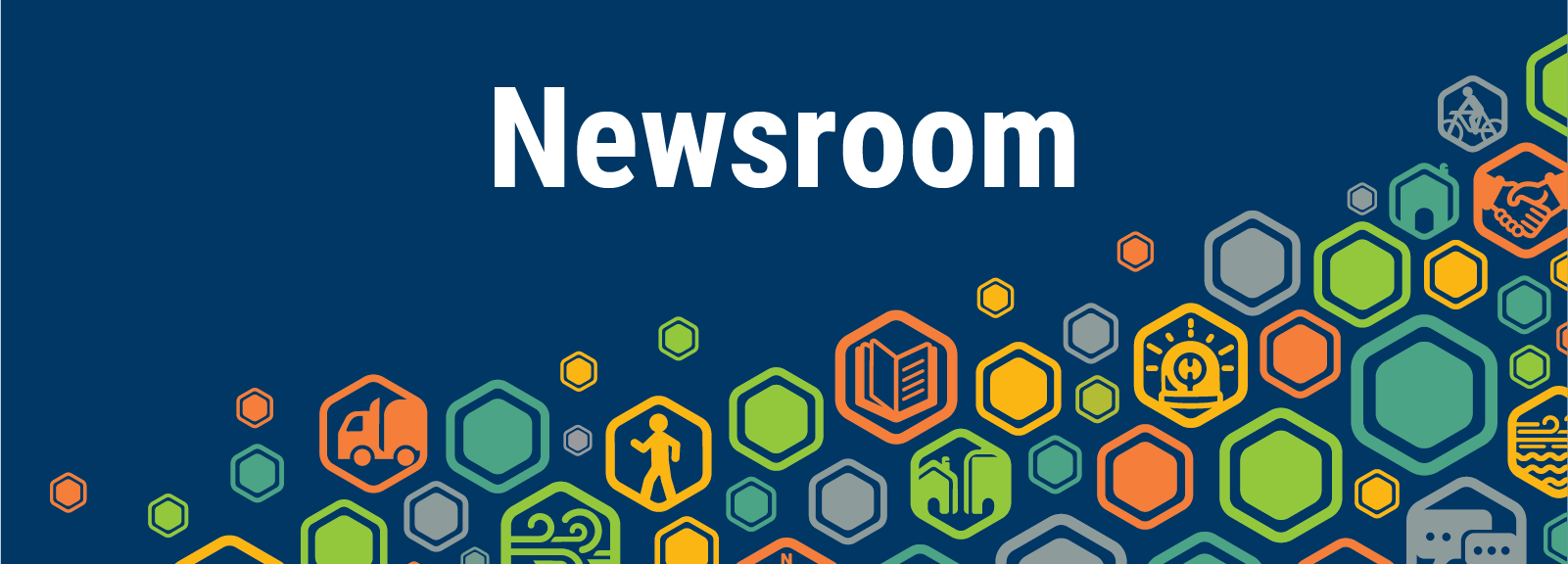
2018 Greater Baltimore State of the Region Report: Major changes during the past 20 years include growing diversity, educational attainment and an economy in transition.
BALTIMORE, MD (May 14, 2018) – A report being released today by the Greater Baltimore Committee and Baltimore Metropolitan Council, which looks at demographic and other changes that have occurred in the Baltimore region since 1998, finds that the region’s population has become more diversified, a higher percentage of residents hold college degrees, and the economy has transitioned from industrial manufacturing to one driven by technology, medicine, higher-education and service-based businesses.
These major shifts, which are still underway, bode well for the region’s future, the two organizations conclude in the Greater Baltimore State of the Region 2018 Report.
The report also compares the Baltimore Metropolitan Statistical Area (MSA) to 19 other peer metro regions, such as Atlanta, Dallas and Pittsburgh. The Baltimore MSA includes: Baltimore City, Baltimore County, Anne Arundel County, Carroll County, Howard County, Harford County and Queen Anne’s County.
Other findings in the report, to be released tonight at the Greater Baltimore Committee’s 63rd Annual Meeting and on the two organizations websites, point to several challenges that elected officials and the private sector should watch closely, including declining home ownership rates and increased commute times.
“On the whole, the report found that the Baltimore region has many positive trends that the private sector will be working to support and nurture to ensure the region retains a highly attractive business climate. The region’s strong shift to technology, medicine and the digital economy is particularly promising and shows the innovation and drive of our business community and major educational institutions,” said Donald Fry, President and CEO, of the Greater Baltimore Committee.
“Some findings in the report remind us that the GBC and private sector must continue to explore how we can continue to work with elected officials and others to ensure that the increased wealth and education that some segments of society have experienced helps lift those struggling with rising costs of living and the skill demands of the modern labor market.”
“On the one hand, the regions we analyze in this report are a benchmark for our own success. On the other, these regions represent our competition for attracting and retaining talented people and top employers. We must work cooperatively across sectors and political boundaries to advance our competitive position among our peers," said Mike Kelly, Executive Director, of the Baltimore Metropolitan Council.
"Over the last twenty years, the Baltimore region has seen notable increases in household income, cost of living, and population diversity. An important question for the next twenty years will be how rising incomes and costs impact our increasingly diverse community. There is a lot of progress to be proud of in this report and our hope is that through cooperation and thoughtful investment in places and people we will see continued improvement in the years to come.”
The report considers a variety of indicators in seven key measures to gauge the strengths and weaknesses of the Baltimore region and 19 peer regions. They are: Demographics; Economy; Business; Employment; Education & Workforce; Transportation; and Quality of Life.
Some of the key changes that occurred in the region include:
The Baltimore’s population diversified much faster than its peers. The region’s Hispanic population grew by 125 percent, while the Black or African American population grew by 130 percent. In fact, Baltimore led its peers in Hispanic population growth and saw the fourth highest percentage gain in the Black or African American population since 1998.
The region saw significant improvement in educational attainment. More than 37 percent of the region’s population 25 and older had a college education in 2017, up from 25 percent in 1998. The gains pushed the Baltimore region to No. 7 among the peer group, up from No. 13 in 1998 for the percentage of the population with college degrees. Also among adults 25 and older, more than 26 percent of the population’s highest level of education was a high school diploma in 2017, up from 18 percent in 1998. That improvement moved the Baltimore MSA to the No. 8 position, up from No. 10, among its peer group for high school education.
Business ownership also improved in the 20-year period. The percentage of women-owned firms rose to more than 21 percent, up from 16 percent, while the percentage of Hispanic-owned firms rose to more than 2 percent, up from just more than 1 percent. The percentage of Black-owned businesses rose to more than 5 percent, up from more than 3 percent in 1998.
Per capita personal income and median household income surged between 1998 and 2017 in the Baltimore region. In fact, the region had the second highest growth rate among its peers for per capita personal income, which increased 52 percent to $38,406, up from $25,347. The region experienced the third highest growth rate in median household income, which doubled to $76,788 from $38,361.
The home ownership rate in the region fell to just more than 65 percent, from almost 72 percent in 1998. That pushed Baltimore to No. 8 among the peer metro regions for home ownership, down from the No. 5 spot in 1998.
Average travel time to work increased by five minutes, from 26 minutes in 1998 to 31 minutes in 2017, making average commutes in the Baltimore region the 4th longest among its peers. Ridership on heavy and light rail in the region also declined to 19.8 million from 24.6 million. That pushed Baltimore to No. 10 among its peers for rail ridership, down from the No. 6 spot in 1998.
As Fry and Kelly note in their forward in the report, the State of the Region data and findings will “inform decision makers of strengths that can be leveraged to ensure an attractive business climate and economic vitality, as well as weaknesses that need to be addressed to ensure the region doesn’t falter and become inconsequential compared to its peers.”
The GBC and BMC plan to use the State of the Region Report to develop policy recommendations, competitiveness strategies and programs that promote workforce skills, diversity in leadership and inclusiveness in the economy.
The 2018 State of the Region Report marks the seventh time the GBC has collaborated to publish such a study. The first report was published in 1998 by the GBC and the Greater Baltimore Alliance. Through the years, subsequent reports have been published by the GBC, BMC and the Economic Alliance of Greater Baltimore. The two most recent updates released in 2007 and 2011 were joint efforts of the GBC and BMC.
Note to journalists: Digital files of the infographics and the Top 5 and Bottom 5 charts in the State of the Region Report are available for publication by contacting the media relations contacts listed on this release. Any art supplied MUST carry the source credit line: Courtesy of the Greater Baltimore Committee and Baltimore Metropolitan Council.
ABOUT THE GREATER BALTIMORE COMMITTEE
The Greater Baltimore Committee (GBC) is a regional organization of business and civic leaders that includes businesses, nonprofit organizations and educational and civic institutions. It is the leading voice for the private sector in the Baltimore region on issues relating to economic growth, job creation, workforce development, transportation, the business climate and quality of life. The GBC’s membership is comprised of over 500 member organizations, including large, mid-size and small companies, nonprofits, education and foundations in the Greater Baltimore region.
ABOUT THE BALTIMORE METROPOLITAN COUNCIL
The Baltimore Metropolitan Council (BMC) works collaboratively with the chief elected officials in the region to create initiatives to improve the quality of life and economic vitality. BMC, as the Baltimore region’s council of governments, hosts the Baltimore Regional Transportation Board (BRTB), the federal metropolitan planning organization (MPO), and supports local government by coordinating efforts in a range of policy areas including emergency preparedness, housing, cooperative purchasing, environmental planning and workforce development. BMC’s Board of Directors includes the executives of Anne Arundel, Baltimore, Harford and Howard counties, the mayor of the City of Baltimore, a member of the Carroll County and Queen Anne’s County boards of commissioners, a member of the Maryland State Senate, a member of the Maryland House of Delegates, and a gubernatorial appointee from the private sector.
###

BALTIMORE, MD (May 16, 2018) – Bike To Work Day in the Baltimore region is postponed until Friday, June 1, because of forecasted severe weather on Friday, May 18. The spirit of Bike to Work Day is to promote bicycling as a safe and healthy commuting option. While many cyclists regularly commute in an array of weather, the threat of flooding and lightning storms, present very real concerns for participants' safety from the Bike to Work Day committee and local public safety agencies.
More than 1,500 cyclists have registered to meet up at 48 pit stop locations around the Baltimore region for the 21st annual Bike to Work Day. Registration will remain open until Wednesday, May 30. Those who registered for May 18 pit stops do not need to re-register.
Bike to Work Day events throughout the region will feature group convoy rides, bicycle tune-ups, riding challenges, free food and drinks, free custom 2018 T-shirts, and other prizes - including two bikes, courtesy of two of our sponsors, Joe’s Bike Shop and Race Pace Bicycles. Cyclists must register for a pit stop to be eligible for the T-shirt or enter into the raffle for two Trek FX 2 bicycles.
Bike to Work Day is a national campaign that celebrates bicycling as a healthy commuting option, while promoting public awareness of its safety and environmental factors. Bike to Work Day helps raise awareness of the rules of the road for drivers, pedestrians and cyclists, and highlights the need to improve bicycle facilities to improve safety. Many of the Bike to Work Day partners are an integral part of the year-round transportation planning process across the region to improve the roads for everyone.
###
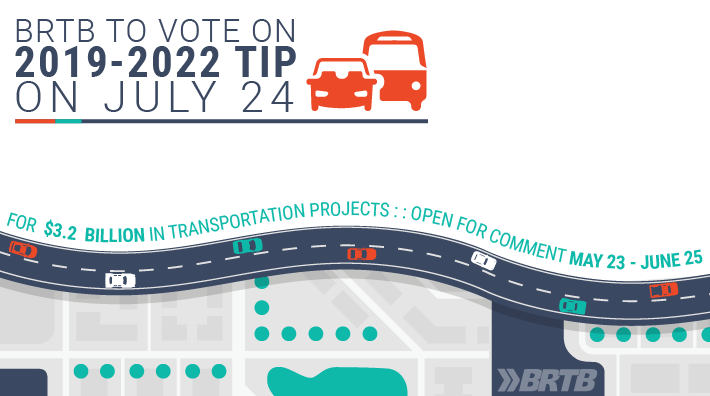
BALTIMORE, MD (May 23, 2018) – The Baltimore Regional Transportation Board (BRTB) as the metropolitan planning organization (MPO) for the Baltimore region seeks public comments through Monday, June 25 on two transportation-related documents – the draft 2019-2022 Transportation Improvement Program (TIP), and the associated Air Quality Conformity Determination of the FY 2019-2022 TIP and amended Maximize2040: A Performance-Based Transportation Plan.
The BRTB is scheduled to vote on these documents on Tuesday, July 24.
2019-2022 Transportation Improvement Program (TIP)
The 2019-2022 TIP is the list of regional transportation projects requesting federal funding in the near term. It includes approximately $3.2 billion in proposed federal, state and local money for highway, transit, bicycle and pedestrian projects during the next four years. The funding goes toward maintaining, operating and expanding the transportation system. The TIP is fiscally constrained.
Air Quality Conformity Determination Report
The Baltimore region has been designated as not meeting National Ambient Air Quality Standards (NAAQS) and, as a result, the BRTB must review its current transportation plan and program to ensure conformity with the state plan to meet these standards, known as the State Implementation Plan (SIP). The Air Quality Conformity Determination report details a comprehensive analysis of effects that the draft 2019-2022 TIP and the amended Maximize2040: A Performance-Based Transportation Plan have on the Baltimore region. The report addresses ground-level ozone emissions.
The conformity results show that implementation of these projects will not worsen the region’s air quality or delay the timely attainment of national air quality standards. The draft air quality conformity determination is available in PDF format for download.
###
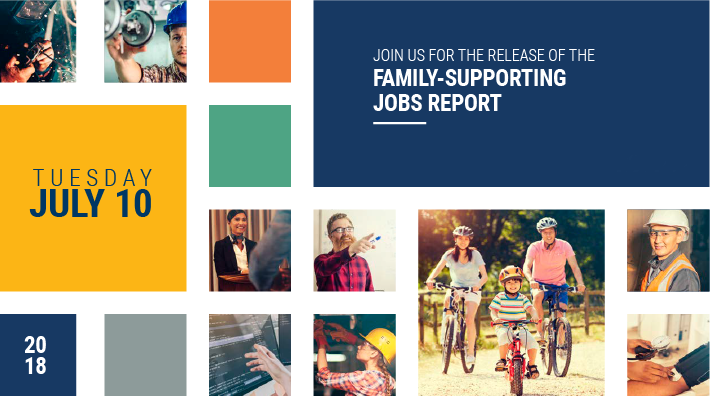
Family-Supporting Jobs Report Projects Employment Growth for Workers with Less Than a Bachelor's Degree Through 2026.
BALTIMORE, MD (July 9, 2018) – There is an important segment of jobs – requiring less than a bachelor’s degree – that will grow by 13.4 percent in the next decade in the Baltimore region.
The Baltimore Metropolitan Council (BMC) will release the 2018 Family-Supporting Jobs Report on Tuesday, July 10. The release will include a stakeholder discussion of the report’s findings from 7:30 to 9 a.m. at BMC’s office, located at 1500 Whetstone Way, Suite 300, Baltimore, MD 21230. The purpose of the report is to help job seekers, workforce development professionals, educators and employers make informed decisions about career choice and training opportunities in the Baltimore region.
“A four-year college degree simply is not the best fit for every person. Our report shows that there are paths to family-supporting careers for the 60 percent of working-aged adults in our region who don’t have a bachelor’s degree,” said Mike Kelly, executive director of the Baltimore Metropolitan Council. “We’re excited to share the study with our workforce development partners in the region, and we hope that it will help align resources toward training for these in-demand occupations.”
The report is a comprehensive assessment of the employment opportunities in family-supporting jobs in central Maryland. Family-supporting jobs are defined as occupations that pay an hourly wage that allows working adults with less than a bachelor’s degree to provide for their family’s needs. For the Baltimore region, the report applies a benchmark average hourly wage of $22.28.
Family-supporting jobs will represent 13.8 percent (238,871 jobs) of the Baltimore region’s hiring demand during the next decade. This figure puts the region in the top half of its peers nationally.
The report forecasts demand in family-supporting jobs across a range of sectors, and measures of education, work experience, and training. In the region, the following sectors are expected to offer the highest number of family-supporting job opportunities: construction, business services, and healthcare.
Among other factors, the report looks at work experience and on-the-job training requirements to help people better understand the credentials typically expected for various positions. It also identifies the top 50 family-supporting occupations by total demand, median hourly wage, and new job growth.
“BMC has done an excellent job in distilling a complex and broad set of data into a useful resource that workforce development professionals and the public can understand,” said Linda Dworak, director of the Baltimore Workforce Funders Collaborative. “I am confident that this report will help workforce development agencies, trainers and individuals meet the changing demands of our region’s employers.”
The 2018 report builds upon the Baltimore Regional Talent Development Pipeline Study, released by BMC in 2013. The Talent Development Pipeline Study – a product of the Opportunity Collaborative – found that our region’s job opportunities fell mainly into two categories: jobs requiring at least a bachelor’s degree that pay high wages and jobs that require few technical skills and pay less than a living wage. The goal of the 2013 report was to identify a set of attainable jobs that could quickly provide, or lead to, a family-supporting wage for a family near the poverty line.
###

BALTIMORE, MD (July 31, 2018) – The Baltimore Regional Transportation Board (BRTB) welcomes comments through Friday, August 31, on updates to Maximize2040: A Performance-Based Transportation Plan and the 2019-2022 Transportation Improvement Program (TIP) for two Maryland Transportation Authority (MDTA) projects. BRTB proposes amendments for:
• Funding updates to the I-95 Express Toll Lane Northbound Extension project; and
• The addition of a new project, I-95 Port Covington Access Improvements.
The BRTB is scheduled to vote on these amendments on Tuesday, September 25, at 9 a.m.
Maximize2040 is this region’s $12.5 billion long-range transportation plan developed by the BRTB.Maximize2040 serves as the blueprint for fiscally constrained transportation planning in the Baltimore region from the year 2020 to 2040. The plan also establishes the region’s broad transportation goals and performance measures, which now serve as guiding principles as the region plans and carries out projects.
The 2019-2022 TIP is the list of regional transportation projects requesting federal funding in the near term. It includes more than $3.2 billion in proposed federal, state and local money for highway, transit, bicycle and pedestrian projects during the next four years. The funding goes towards maintaining, operating and expanding the transportation system. The TIP is fiscally constrained.
Updates occur in Maximize2040 and the 2019-2022 TIP because of changes to project scope and funding or changes to federal documentation policies. Public comment periods and meetings aim to keep communication open regarding these changes.
###
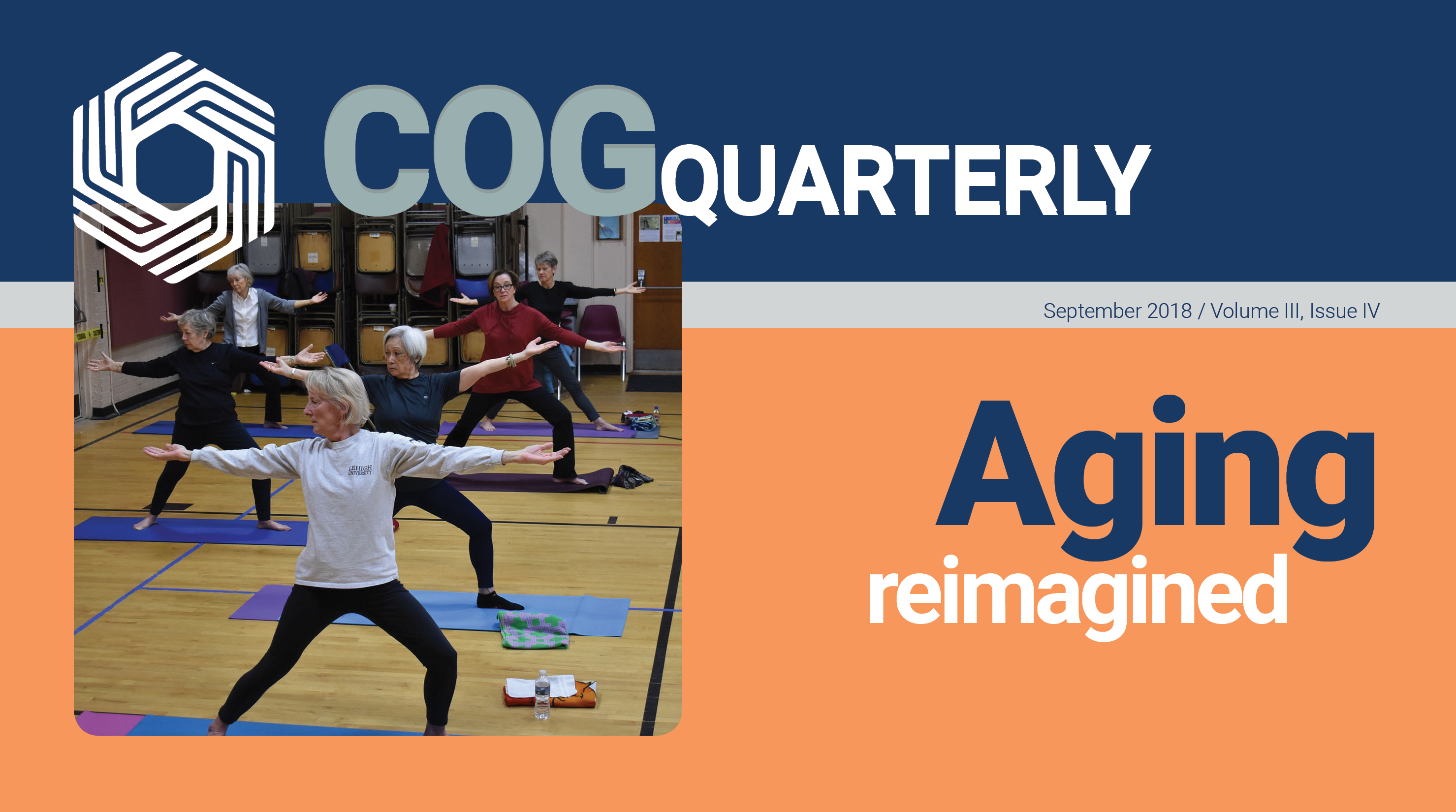
By 2030, all of the Baby Boomers – those born between 1946 and 1964 – will be ages 65 or older. The U.S. Census Bureau points out that they’ll outnumber children for the first time in U.S. history.
While 2030 may seem like a long time from now, it’s only 12 years away, and will be here before we know it.
Our COG Quarterly cover story, “Aging Reimagined,” highlights the efforts underway throughout the Baltimore region to meet the current and future needs of this rapidly maturing population. Together, we're collaborating to make sure that Baby Boomers can age in place.
Read the September 2018 Issue of COG Quarterly
In addition - believe it or not - this is our twelfth issue of COG Quarterly in three short years. We want to make sure that we’re providing you, the reader, with interesting, relevant content. So please take a quick few minutes to complete our reader feedback survey.
Thank you for reading our magazine. We look forward to hearing your thoughts on how we can make it even better.

BALTIMORE, MD (October 16, 2018) – The Baltimore Metropolitan Council (BMC) and Baltimore County will host the tenth annual Meet the Primes networking event, which connects small- and minority-owned businesses with prime contract bidders, on Wednesday, October 17. The event will take place from 8 a.m. until noon at the Maryland State Fairgrounds in the Exhibition Hall, located at 2200 York Road in Timonium.
More than 800 people from small- and minority-owned businesses are registered to attend the Meet the Primes event. Likewise, more than 100 exhibitors from government, public education, private companies and other entities will be there to make connections.
"For the last 10 years, we've worked with our partners around the Baltimore region to facilitate opportunities for small- and minority-owned businesses to network," said Michael B. Kelly, executive director of the Baltimore Metropolitan Council. "Local governments have significant buying power in our region, and Meet the Primes serves as a way to connect business owners so that they are able to compete for public dollars."
Meet the Primes serves as an invaluable stepping stone for small- and minority-owned businesses to make connections, find work and grow. The prime bidders who will attend the event represent millions of dollars in annual contracts for many industries in the Baltimore region.
“We envision a very personable, low-pressure networking event," said Robert Ball, of Baltimore County Public Schools. "Meet the Primes is a way to maximize business prospecting efforts by communicating current and upcoming projects, presenting credentials, and seeing if there is a good fit."
The event also will feature one-on-one meetings between business owners and government agencies and/or a prime company. The intent of the five-minute one-on-one meetings is to provide business owners with exclusive time to discuss products and services with procurement officials/buyers/decision makers. Those interested should review the one-on-one meeting schedule on the registration page and email requests to events@mwmca.org.
For more information about Meet the Primes, contact Robert Ball by email at rball@bcps.org or by phone at 443-809-4334; or contact Carla Tucker by email at ctucker@baltimorecountymd.gov or by phone at 410-887-3119.
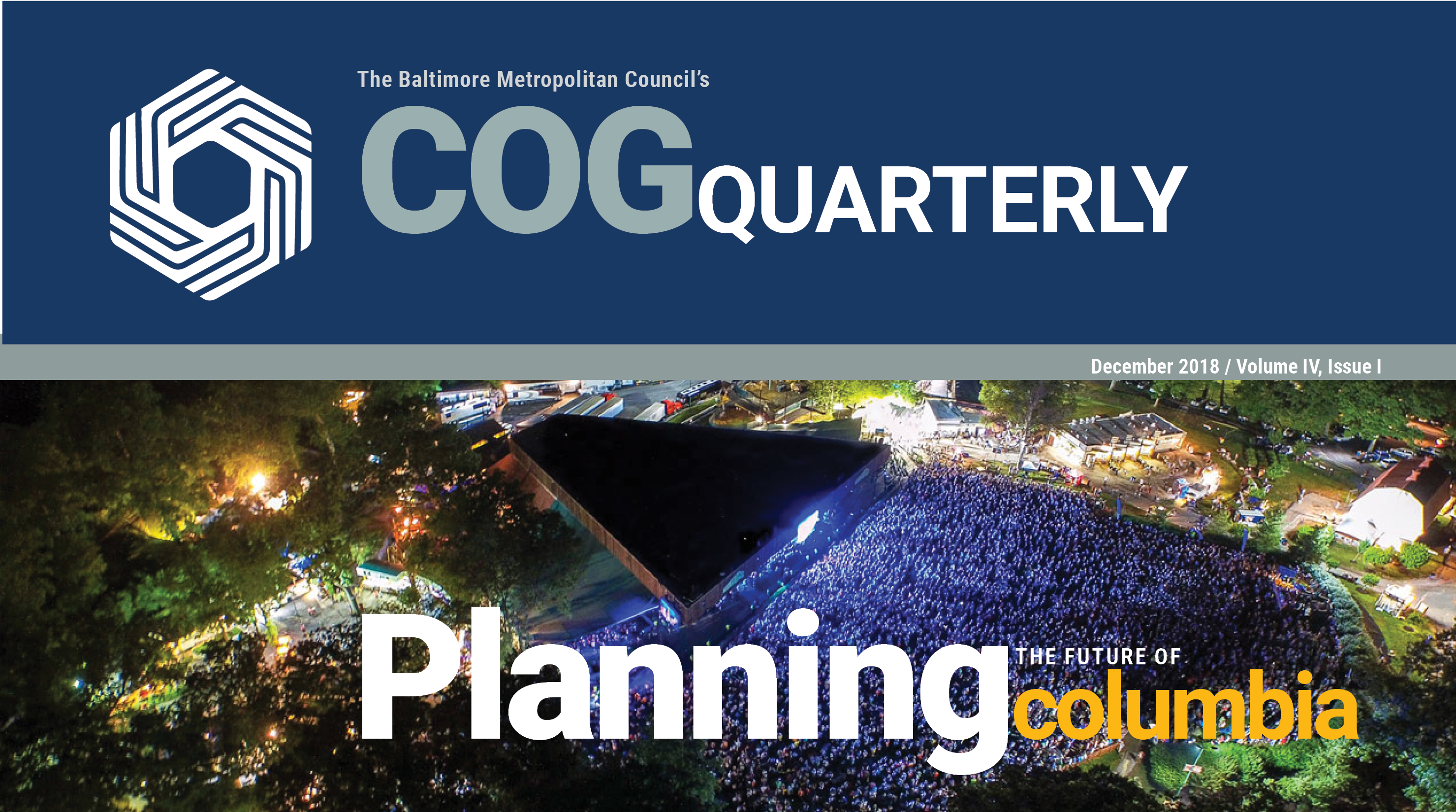
The appeal that brings million-dollar performances and therefore hundreds of thousands of patrons annually to spend time and money in Downtown Columbia is the result of a strategic planning effort by Howard County and the Howard Hughes Corporation, working with multiple partners, such as Columbia Association. The city center is in the midst of a redevelopment effort designed to enhance life in Downtown Columbia by giving people options to move easily between work, home, school, running errands, eating and drinking, as well as experiencing art and culture.
The Baltimore Metropolitan Council (BMC) serves as a vital resource to ensure that Downtown Columbia’s transportation and fair housing planning efforts, in particular, resonate throughout the Baltimore region. We invite you to read our December 2018 cover story, "Planning Columbia," which details the progress of redeveloping Downtown Columbia.

BALTIMORE, MD (January 17, 2019) – The Baltimore Metropolitan Council (BMC) hosted a meeting of its Board of Directors on Thursday, January 17, 2019 at 8:30 a.m. The BMC Board of Directors unanimously approved Mayor Catherine E. Pugh as its chair and Baltimore County Executive Johnny Olszewski as its vice-chair for calendar year 2019.
As the region's council of governments, BMC serves a vital role as a convener of stakeholders. BMC is an important resource for local governments and the community as a whole - from transportation planning, to workforce development, affordable housing coordination, and cooperative purchasing.
Pugh is optimistic and committed to working with her fellow elected leaders around the region to advance shared goals, she said.
"Now, perhaps more than ever before, we have a unique opportunity to strengthen the relationship between the City of Baltimore and the counties that make this area a great place to conduct business, to learn, enjoy leisure, and call home," said Mayor Catherine E. Pugh. "It will be my aim to ensure that we fully leverage the capacity of the BMC as a forum for research, analysis and collaboration to support the shared work of enhancing our region's economic competitiveness and quality of life."
Michael B. Kelly, BMC executive director, said that he looks forward to Pugh's leadership in 2019.
“The City of Baltimore is the heart of our metropolitan region,” Kelly said. "We look forward to working with Mayor Pugh and her staff to advance the common priorities of the city and our counties in the coming year."
###
